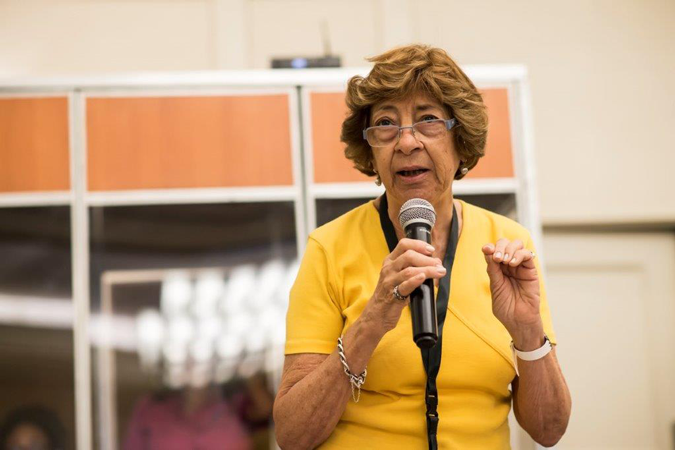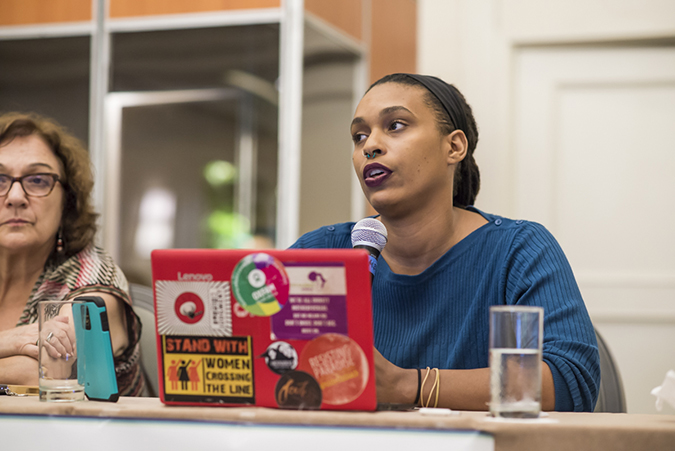Civil Society organizes for CSW61
More than 80 civil society representatives from Latin America and the Caribbean, including members of more than 10 regional women’s and feminist networks, met in Panama City to prepare for the 61st Session of the Commission on the Status of Women.Date:

At the Civil Society Forum, they agreed on a common strategy to promote women’s economic empowerment in the region. The strategy will be presented to ministers and gender officials at the Regional Consultations for CSW61, which opened on the evening of 6 February in Panama.
"As women and as feminists, with this NGO forum and by making recommendations to our governments, we want to strengthen each other. We believe that at the core of things, we share a lot with the women's ministers in the region,” said Mabel Bianco who led the meeting with Louise Finiken in their role as co-chairs of the NGO Committee for CSW of Latin America and the Caribbean (CoNGO CSW LAC).
Empowering women economically in the changing world of work, the priority theme of CSW61, requires changing macroeconomic policies as well as policies directed at women’s empowerment. Presenting a united and strong regional position that includes governmental and non-governmental perspectives is, therefore, particularly important this year.
In her opening remarks, UN Women's Regional Director, Luiza Carvalho, stressed that in a challenging economic and political context, “you need to define strategies for civil society to push for change successfully and ensure that the United Nations become more progressive and participatory."
Ana Tallada from the Latin American Women's Network Transforming the Economy, confirmed that it was important to ground the agenda for women's economic empowerment in feminist arguments: "To challenge the argument that 'we don’t have the resources', we need to say ‘yes, we do have resources, but these resources are often misused’.”
"We must empower ourselves economically, but also politically, to change the economic systems in our countries," added Otilia Lux, indigenous leader from Guatemala.

Stephanie Leitch of WOMANTRA in Trinidad and Tobago touched on another important aspect of women's economic empowerment: “Women’s labour is tied to their reproductive labour, like an umbilical cord," she said in her presentation on the challenges for young women’s economic empowerment.
The gendered division of labour and unpaid carework were one of the six key areas identified by the participants. In working groups, they also discussed macroeconomic and trade policies; structural barriers; women’s education and access to Internet and Communication Technologies; social protection policies; and women, land, territories and natural resources.
After the meeting, the organizers of the forum put together a position paper based on the results of the working groups and will present it to their governments in the regional consultations.